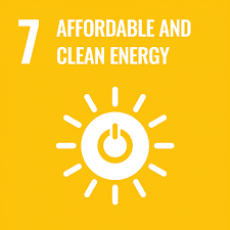
Centre for the Integrated Delivery of the Built Environment (IDoBE)
Bringing together experts with the specialist skills and competences to develop research that offers high impact, sustainable solutions to society’sbiggest challengesLSBU's Centre for the Integrated Delivery of the Built Environment (IDoBE) evolved from two research centres - Construction Management, Economics & Integrated Delivery (CEMID) and Centre for Sustainability and Resilient Infrastructure and Communities (SaRIC). IDoBE is led by academics with expertise in construction, property, surveying, energy, sustainability, and development within the School of the Built Environment and Architecture. The Centre’s research builds on the School’s flagship courses in construction project management and economics, quantity surveying, building surveying, real estate, and architectural technology. The Centre’s diverse membership has a commitment to innovation and improvements in construction through improved business processes, and the greater use of Building Information Modelling (BIM) for integrated delivery of sustainable build assets.
The Centre focuses on key research themes to address productivity, construction waste, and sustainability in the built and national environments, using knowledge, innovation and digital transformation to improve cost certainty and predictability of construction projects and to address leaderships challenges and skills gap to deliver 21st century liveable buildings and sustainable communities .
The Centre’s approach is to leverage knowledge from multidisciplinary partners to support the delivery of high impact and sustainable solutions to the biggest challenges facing the built environment.
Investigated topics
- Big data analytics for process improvement
- Building information modelling
- Carbon finance to mitigate climate change
- Circular economy
- Construction Management
- Disaster and Urban Resilience
- Health and sustainable buildings
- Housing
- Integrate models such as joint venture and public private partnerships
- Leadership, ethics and professionalism in the built environment industries
- Life cycle and carbon cost planning
- Management and integrate of data for the built environment
- Market structure and growth strategies
- Mental health, equality, gender, diversity, welfare and modern slavery
- Project financing models (e.g. public private partnerships)
- Real estate, international property investment, and strategic asset management
- Resource Efficiency, Energy and Building Performance
- Renewable energy systems
- Risk Management
- Smart and intelligent cities
- Sustainable community development
- Sustainable Built and Natural Environment
- Sustainable and Resilient Infrastructural development
- Sustainable Urban Retrofitting
- Smart Cities and Communities
- Waste management
- Wellbeing and the Built Environment
Current projects
Harmonization of Construction Health and Safety Practices in the Southern African Development Community
The research is carried out in collaboration with Mangosuthu University of Technology - KwaZulu-Natal, Durban, South Africa to address an urgent need to strengthen standards of construction health and safety practices in the Southern African Development Community (SADC). The research funded through Newton Advanced Fellowships focuses on developing a framework for improving health and safety practices to promote a non-hazardous work environment and to reduce the burden of occupational injuries and fatalities in SADC. If you would like to enquire about our research projects, Please contact Professor Obas John Ebohon ebohono@lsbu.ac.uk
Circular Cementitious Products Embedding Digital Manufacturing. Funded by Innovate UK, Foundation Industries Lab to Lab India Collaboration.
Aiming to enhance the circularity and sustainability in India and UK, this new collaborative project led by LSBU utilises local waste sources, including recycle concrete aggregates, and plastic wastes, and other recycled sources for a digital-driven circular use in cementitious materials (i.e., pavement blocks). Besides a comprehensive circular use of different sustainable sources, a further innovation of this project is to develop the blocks with the novel modular interlocking mechanism with significant saving of cement, and for fast and cheap building and infrastructure construction. Please contact Olubisi Ige igeo4@lsbu.ac.uk for further details on this project.
Urban Migration For Good -from Forced Displacement to a Good City, the Case of Cabo Delgado, Mozambique
Funded under the British Academy’s interdisciplinary programme to explore ‘what makes a good city’, this project examines concepts of a ‘good city’ in a least-developed country and context of urban crises, an extreme case in which to explore ‘good city’ visions. By addressing a crisis, the research contributes knowledge to improve the lives of the most impoverished urban dwellers, with widespread replicability. Please contact Associate Professor Edmundo De Werna-Magalhaes dewernae@lsbu.ac.uk for more details on this project.
Integrated Built Environment Teaching & Learning in the Joint Curriculum Development amid Digital-Driven Industry 4.0 among China, Vietnam, and UK
The paradigm shift towards digitalisation, is recognized as a key to enhance the productivity, safety, and sustainability of the global architecture, engineering, and construction (AEC) industry. Aiming to address the gap between university education and industrial demands, this UK-China-Vietnam Education partnership will boost the education towards digitalisation by connecting students with academic staff and professionals from the three countries. This project is funded as part of the Going Global Partnership: UK-China-ASEAN, Education Partnership Initiative funded by the British Council. Please contact Associate Professor Ruoyu Jin jinr@lsbu.ac.uk for further details on this project.
Building Information Modelling (BIM) Centre
BIM is an approach to managing and planning every aspect of design and operation in the construction process in a better, more efficient way to improve the basis upon which the construction industry and its clients operate. The BIM Centre acts as a hub for innovation, professional training and networking amongst practice experts in the built environmental sector.
Other facilities
- Lighting Laboratory
- Building Information Modelling Lab
- Building Services Laboratory
- Design and Soft Modelling Lab
- Rapid Prototyping Technology Lab
- Virtual Engineering Suite
The Centre also has access to other general engineering facilities within the University, including the Engineering and Welding Workshops, the Machine Shop, the Modelling Workshop, the Virtual Engineering Suite, plus many other design and soft facilities.
IDoBE SDG Concerns
 |  |  |  |
Contact
For any enquiries about IDoBE, please contact Prof. Obas John Ebohon.














